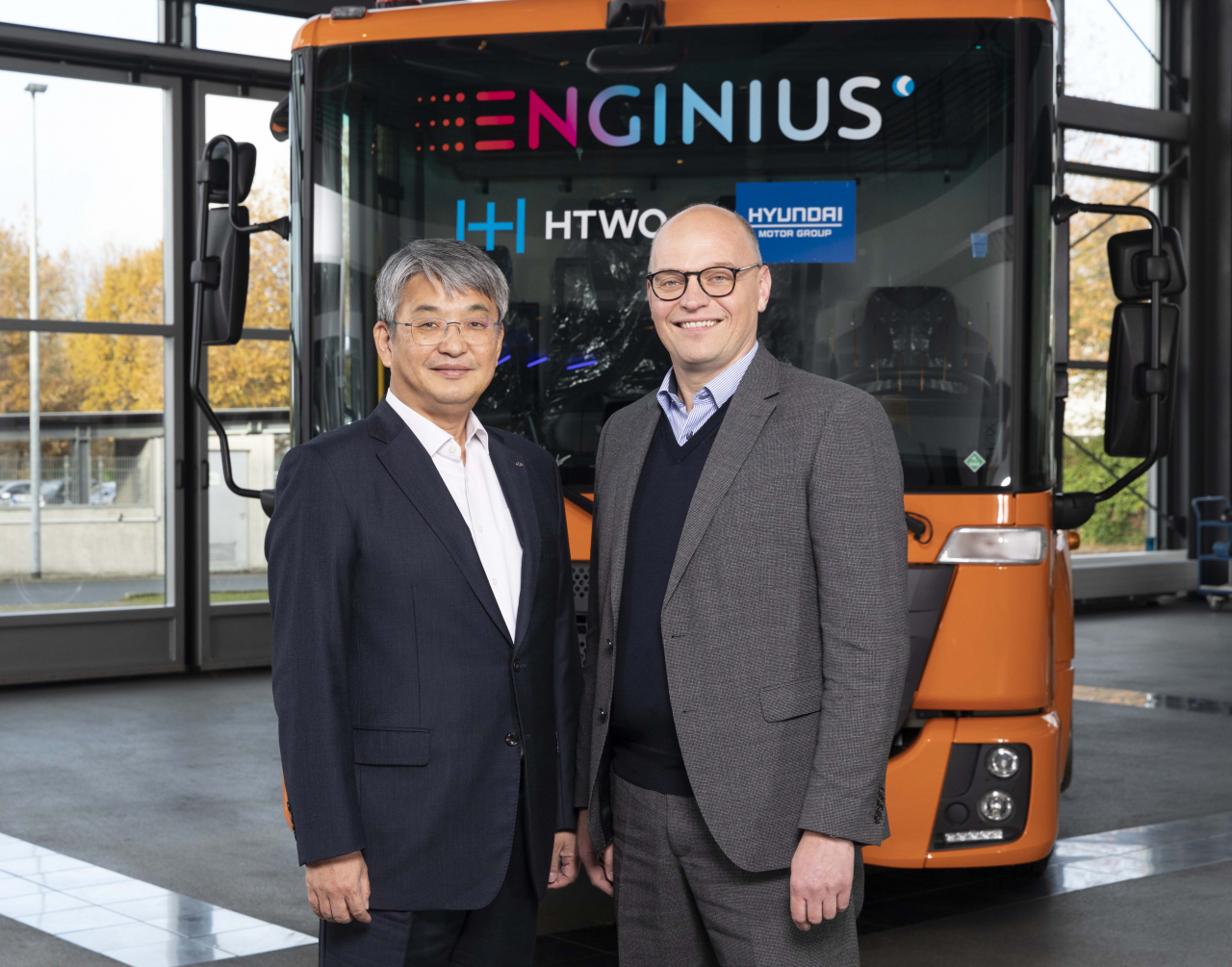Hyundai Motor to supply fuel-cell systems to Germany's Faun
By Byun Hye-jinPublished : Dec. 12, 2022 - 18:12

Hyundai Motor Group said Monday it will supply a total of 1,100 hydrogen fuel-cell systems to Enginius, an eco-friendly car brand under the Germany-based Faun Group, in a three-year deal.
It is the first time the South Korean carmaker has agreed to provide a massive amount of electric power systems.
Under the deal, Hyundai’s 90-kilowatt hydrogen fuel-cell systems will power Enginius’ two brands -- Bluepower for garbage trucks and Citypower for cargo trucks whose market debuts are set to be made in 2023 and 2025, respectively.
“Partnering with Faun Group, HTWO took one step closer to reducing fossil fuel reliance,” said Lim Tae-won, Hyundai Motor Group’s head of hydrogen fuel-cell division, in a statement. HTWO is Hyundai’s fuel-cell system brand that was launched in 2021. It stands for the hydrogen molecule H2.
Hyundai Motor Group is the largest supplier of hydrogen-powered cars, with a market share of 59.1 percent, selling 9,591 units of the Nexo SUV worldwide in the January-October period, according to data from market tracker SNE Research. Toyota’s Mirai came in second with 17.9 percent market share.
In a move to cement its foothold in the market, the carmaker recently started sales of Xcient fuel-cell trucks for local consumers. The hydrogen engine cars were first unveiled to the European market in 2020, with 47 and 27 units being sold in Switzerland and Germany, respectively, so far.
The company vowed to develop the third generation hydrogen fuel-cell, an upgrade from the existing second generation products in the near future.
Following its hydrogen road map, it aims to produce 500,000 hydrogen vehicles and 700,000 hydrogen fuel-cell systems by 2030.
In March 2021, the carmaker began the construction of its first overseas hydrogen fuel-cell production factory in Gwangzhou, China, which aims to suspend the production of combustion engine vehicles by 2035.
Hyundai Motor Group operates a local hydrogen fuel-cell plant in North Chungcheong Province, some 106 kilometers from Seoul. It plans to build two more factories in Incheon and Ulsan by 2027. Aside from the Gwangzhou factory, Hyundai Motor Group is considering constructing hydrogen fuel-cell production facilities in the US and Europe, sources said.




![[Herald Interview] 'Amid aging population, Korea to invite more young professionals from overseas'](http://res.heraldm.com/phpwas/restmb_idxmake.php?idx=644&simg=/content/image/2024/04/24/20240424050844_0.jpg&u=20240424200058)













![[KH Explains] Korean shipbuilding stocks rally: Real growth or bubble?](http://res.heraldm.com/phpwas/restmb_idxmake.php?idx=652&simg=/content/image/2024/04/25/20240425050656_0.jpg&u=)

